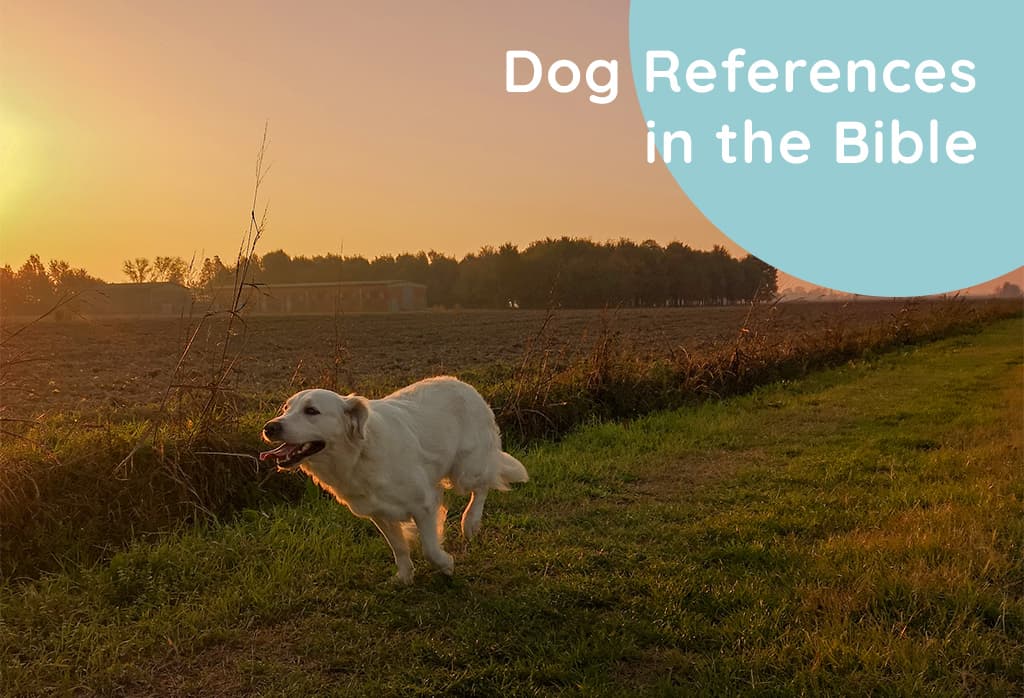There are several references to dogs in the Bible, but there is no specific story about dogs.
Here are a few examples:
In the following passages, dogs are used as a metaphor for foolishness, deception, and lack of concern for others.
Book of Psalms
In the book of Psalms, it states: “As a dog returns to its vomit, so a fool repeats his folly.” (Psalm 26:11)
The verse from Psalms is a proverb that uses the metaphor of a dog returning to its vomit to describe the behavior of a fool who repeats their mistakes or foolish actions. The idea is that, just as a dog may eat something and then later vomit it up, only to eat it again, a fool may make the same mistake again and again, without learning from their experiences.
Book of Proverbs
In the book of Proverbs, it states: “Like a madman who throws firebrands, arrows, and death, is the man who deceives his neighbor and says, ‘I am only joking!'” (Proverbs 26:18-19)
The verse from Proverbs is another proverb that uses the metaphor of a madman throwing firebrands, arrows, and death to describe the behavior of a person who deceives others.
The idea is that, just as a madman may act recklessly and cause harm to others, a person who deceives their neighbor may also cause harm, even if they claim that they are only joking.
New Testament
In the New Testament, the apostle Paul writes: “For it is written in the Law of Moses, ‘You shall not muzzle an ox when it treads out the grain.’ Is it for oxen that God is concerned? Does he not certainly speak for our sake? It was written for our sake, because the plowman should plow in hope and the thresher thresh in hope of sharing in the crop. If we have sown spiritual things among you, is it too much if we reap material things from you? If others share this rightful claim on you, do not we even more?” (1 Corinthians 9:9-12)
The verse from the New Testament is part of a letter written by the apostle Paul to the Christian community in Corinth.
In this passage, Paul is addressing the issue of whether he and his fellow apostles have the right to receive financial support from the Christians in Corinth.
He argues that, just as the Law of Moses requires that an ox be allowed to eat while it is working, so too should the apostles be allowed to receive support while they are working to spread the gospel. He also suggests that, if the Corinthians are willing to support others who claim a right to their support, they should be willing to support the apostles even more.
There are several other verses in the Bible that mention dogs.
Here are a few examples:
Book of Exodus
In the book of Exodus, it states: “You shall not give any of your children to offer them to Molech, and so profane the name of your God: I am the Lord.” (Exodus 22:20)
The verse from Exodus is part of a list of laws and commandments given by God to the Israelites.
This particular law prohibits the practice of child sacrifice, which was a common practice among some pagan cultures.
The use of the term “Molech” refers to a specific Canaanite deity that was associated with child sacrifice.
Book of Deuteronomy
In the book of Deuteronomy, it states: “You shall not bring the fee of a prostitute or the wages of a dog into the house of the Lord your God in payment for any vow, for both of these are an abomination to the Lord your God.” (Deuteronomy 23:18)
The verse from Deuteronomy is part of a set of laws and regulations governing the worship and offerings in the temple of the Lord.
This particular law prohibits the use of certain types of payment for vows or offerings, including the fee of a prostitute and the wages of a dog.
The use of the term “dog” here is likely a metaphor for something that is considered impure or unworthy.
Book of Matthew
In the book of Matthew, it states: “Do not give dogs what is holy, and do not throw your pearls before pigs, lest they trample them underfoot and turn to attack you.” (Matthew 7:6)
The third verse from Matthew is part of a teaching by Jesus about the importance of being selective and discerning in how we share our spiritual gifts and truths.
This particular teaching advises against giving something that is considered holy or valuable to someone who is not likely to appreciate or understand its value, using the metaphor of dogs and pigs. In this context, the term “dogs” likely refers to people who are considered spiritually unclean or unworthy.
In these passages, dogs are mentioned as an example of something impure or unworthy.



